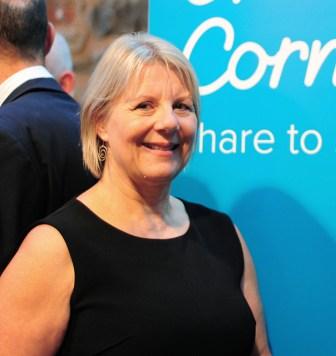Those who think that ‘buying local’ is time consuming and costly should think again according to findings recently released by the Duchy’s foodie hub, Cornwall Food & Drink.

The insights are part of the on-going Choose Cornish campaign launched in September last year by Cornwall Food & Drink and the Cornwall Chamber of Commerce in a quest to boost the local economy by encouraging people to make more use of the businesses on their doorstep.
One of the reasons often given for not using small local businesses is that it takes too much time and costs more than supermarket shopping.
So, in an effort to see for themselves whether this really is the case, Ruth Huxley, director of Cornwall Food & Drink, and her family spent over six months trying to live supermarket-free. They bought as much of their weekly grocery shopping as possible from local independent businesses and found some interesting results.
As it turned out, Ruth’s husband Dave who was the biggest initial sceptic of the scheme became its staunchest convert, ending up visiting towns all over Cornwall to check out their local suppliers and writing about it on the Choose Cornish blog each week, Commenting on the experience.
He said: “My immediate reaction to Ruth’s suggestion was that it was going to be another burden on our already busy lives. However, I soon discovered that although there is a bit of shopping around initially to find suppliers with the range and type of foods that you’re after, once you’ve got your favourites, shopping local takes no longer than ploughing up and down the aisles of a supermarket and queuing at the checkout. In fact, it’s often quicker.”
“We had to learn to look at the final bill rather than getting hung up about individual prices”
Perhaps even more importantly, the Huxley’s discovered that it didn’t cost any more either. When they did the sums they found they were regularly saving at least 10% and sometimes 20% on their weekly grocery bills.
One of the factors that took a bit of getting used to is that simple price comparisons are only half the story. Ruth Huxley explained: “Although the price of many individual items was higher in our local shop than in the supermarket, we weren’t being distracted by all the promotions and special offers which meant that overall we simply bought less.
“We had to learn to look at the final bill rather than getting hung up about individual prices. We also found that buying fresh Cornish produce was really good value, particularly from the local butchers, fishmongers and greengrocers.”
The experiment did throw up some interesting differences in the Huxley household and proved that there are many ways to go local. For Ruth, the ability to order on-line from Cornish suppliers or use a box scheme was a winner because of its simplicity. For Dave, going around the local shops visiting farmers’ markets and farm shops was the highlight.
Over the period of the trial, the family spent 13 times more with local businesses than they had done on average before. Moreover, they haven’t reverted back to their previous habit of spending about 90% of their grocery budget in the supermarket.
Dave Huxley added: “We’re not puritanical about this; I’ve just got to like my weekly shopping routine so much that I’ve simply continued it. We use the supermarkets when it makes sense; picking up the odd item now and again or topping-up midweek, which is a complete reversal of our previous way of shopping. We are still spending more than half our grocery budget with local businesses week in, week out.”
Small changes can make a big difference. At the start of the Choose Cornish campaign it was calculated that if everyone in Cornwall spent just 50p a week on a local product from a local business it would generate £1 million for the Cornish economy in a year.
And if every household in Cornwall tried the supermarket-free experiment and spent half of their weekly budget with independent Cornish retailers, Cornwall Food & Drink says this would amount to a massive shift of around £500 million a year from the large multiples to the businesses that play such an important role in Cornwall’s economy.
Download the Business Cornwall magazine iPad app








